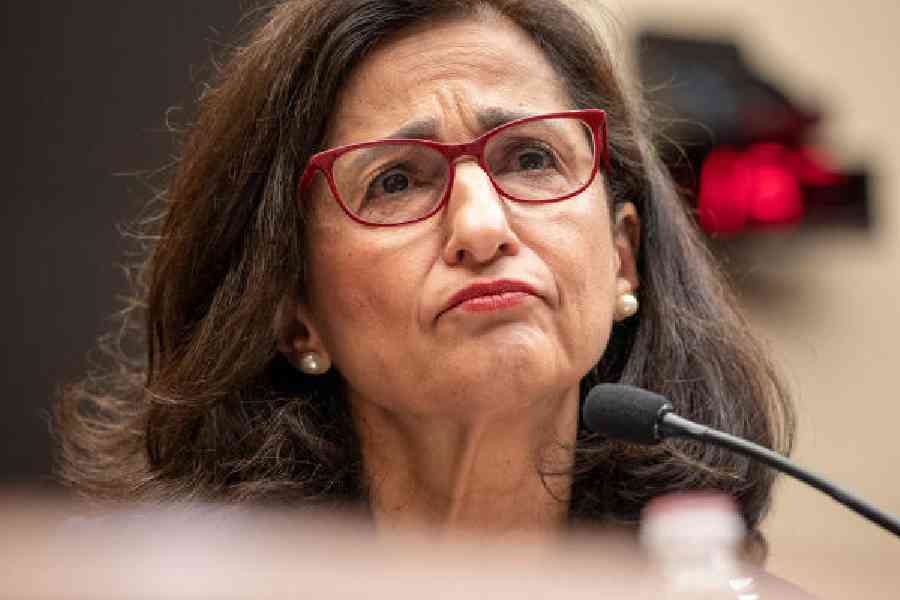Columbia University’s president, Minouche Shafik, resigned on Wednesday after months of far-reaching fury over her handling of pro-Palestinian demonstrations and questions over her management of a bitterly divided campus.
She was the third leader of an Ivy League university to resign in about eight months following maligned appearances before Congress about antisemitism on their campuses.
Shafik, an economist who spent much of her career in London, said in a letter to the Columbia community that while she felt the campus had made progress in some important areas, it had also been a period of turmoil “where it has been difficult to overcome divergent views across our community.”
“This period has taken a considerable toll on my family, as it has for others in our community,” wrote Shafik. “Over the summer, I have been able to reflect and have decided that my moving on at this point would best enable Columbia to traverse the challenges ahead.” She added that her resignation was effective immediately, and that she would be taking a job with Britain’s foreign secretary to lead a review of the government’s approach to international development.
The university’s board of trustees named Dr Katrina A. Armstrong, the CEO of Columbia’s medical centre and dean of its medical school since 2022, as the interim president. The board did not immediately announce a timeline for appointing a permanent leader.
“Minouche has contributed so much to the Columbia community in an extraordinarily challenging time,” the board’s co-chairs wrote in a statement, adding, “While we are disappointed to see her leave us, we understand and respect her decision.”
The resignation of Shafik, who in July 2023 became the first woman to lead Columbia, was unexpected in its timing, with the first day of the fall semester less than three weeks away. Columbia’s board members have repeatedly said they stood behind her leadership, and the campus had been largely quiet through the summer.
But as much as its sudden end, the brevity of Shafik’s presidency underscores how profoundly pro-Palestinian demonstrations shook her campus in New York and universities across the country.
Facing accusations that she was permitting antisemitism to go unchecked on campus, Shafik made a conciliatory appearance before Congress in April that ended up enraging many members of her own faculty. She twice summoned the police to the campus, including to clear an occupied building. The moves angered some students and faculty, even as others in the community, including some major donors, said she had not done enough to protect Jewish students on campus.
Shafik’s tenure was among the shortest in Columbia’s 270-year history, and much of it was a sharp reminder of the challenges facing university presidents, who have sometimes struggled recently to lead upended campuses while balancing student safety, free speech and academic freedom.
Few university leaders were as publicly linked to that dilemma as Shafik, whose school emerged as a hub of the campus protests that began after the Israel-Hamas war erupted last year.
Those protests, as well as accusations of endemic antisemitism, drew the attention of House Republicans, who orchestrated a series of hearings in Washington starting last year. Shafik appeared at one in April.
When Shafik — whose given name is Nemat — arrived at Columbia last year, she was the rare Ivy League president who was not steeped in American academia and who was new to the tensions on its college campuses. She had been president of the London School of Economics for six years before taking the Columbia job.
New York Times News Service











